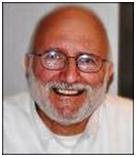
The case of a North American contractor, Alan Gross, judged in Havana on 4 March this year for a crime against the security of the Cuban state raises suspicions and questions. More than a few within the island wondered if his rights as a defendant were respected or if the court that prosecuted him was independent.
In this very last aspect, the Cuban Constitution contradicts itself. It says that juries “in their function of imparting justice, are independent and have no other obedience than to the law”, but it sometimes subordinates them to the decisions of the National Assembly and of the State Council.
In fact, the last of these two political organs is constitutionally directed to interpret the law and to impart instructions to the Prosecution and the courts. The case of the contractor has political dimensions and his imprisonment has become an obstacle for normalisation of the relations, which deteriorated beginning 50 years ago, between Cuba and the US.
The probability that politics has biased the juries, is high. Moreover, doubts are raised by the delay in the investigations and the decision of the authorities to request a sentence of 20 years imprisonment for Gross, charged with the commission of “acts against the independence of the state or the integrity of its territory”, one of the more imprecise and severe precepts of the criminal legislation.
His detention without charges, in December 2009, was excessively prolonged. Then, 14 months after his imprisonment, the prosecution presented the accusation in front of the Court of Havana. Everything indicated that the work of the investigation was difficult for the authorities.
The law of the criminal proceeding expected that between the detention and the exercise of the final public action, no more than 100 days would pass. However, the proper law allows the General Prosecution of the Republic, the capacity to extend this undefined end, for a request of the head of the Ministry of Interior or the prosecution.
The Criminal Procedure Law provides that between arrest and the exercise of public prosecution, no more than 100 days should elapse. However, the law itself gives the Attorney General of the Republic, the power to extend the term indefinitely, at the request of the head of the Interior Ministry or the prosecutor.
Perhaps the suspicion is true that the prosecution of Alan Gross was brought to its conclusion to turn him into a currency of exchange. There are speculations about the possibility that the Cuban government, in compliance with its promise to bring back to their five heroes, would try to exchange the North American for them.
Raúl Castro, president of the State Council and the Ministry, unsuccessfully tried this action with 52 dissidents of the group of 75 prosecuted in Black Spring*. It is too much of a coincidence that Gross’s defense attorney was the Cuban lawyer Nuris Piñero Sierra, 61 years old, who also represents five agents of the Cuban intelligence, prisoners in the United States.
It all possibly indicates that the North American subcontractor was subjected to a biased trial and defense.
*Translator’s Note: The Black Spring refers to the arrest of independent journalists and others in March 2003 (when the world’s eyes were turned to the American invasion of Iraq).
Translated by: Ivana Recmanová
April 7 2011
